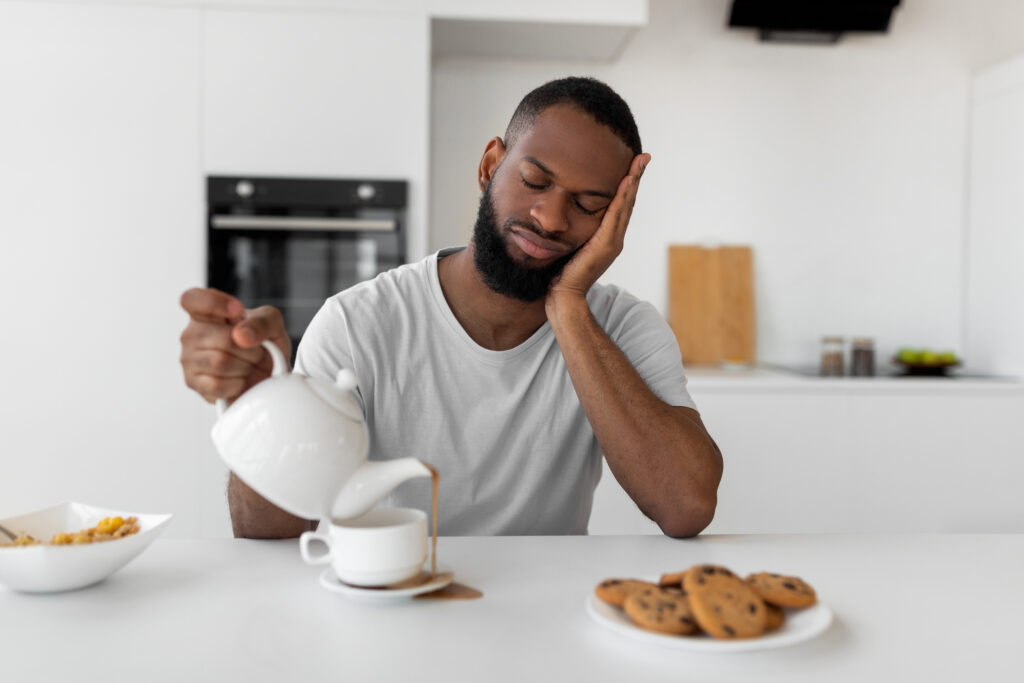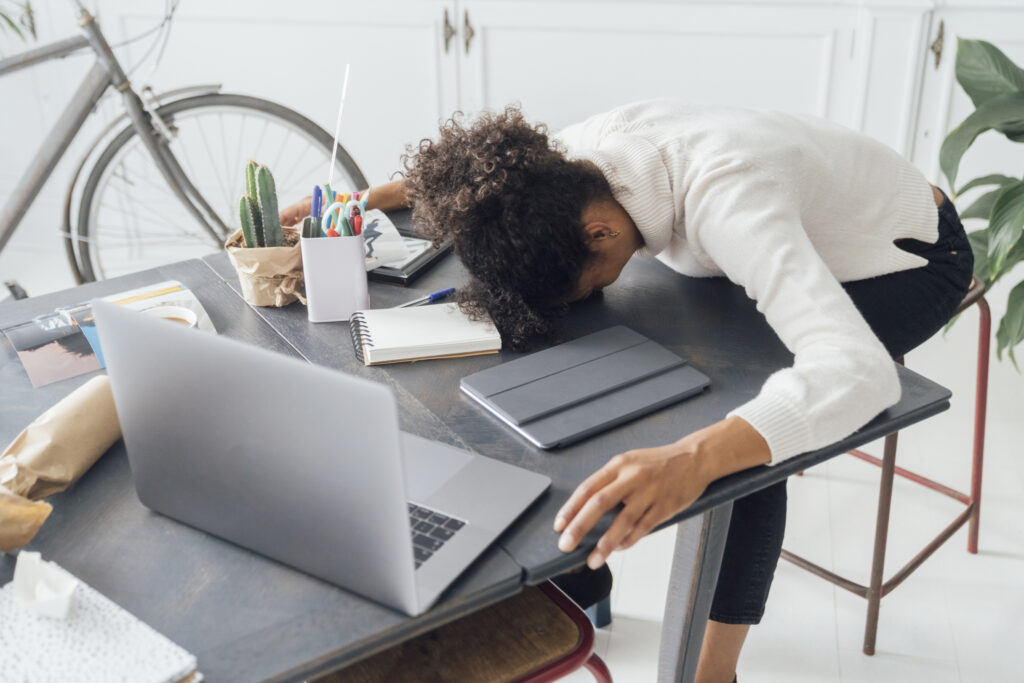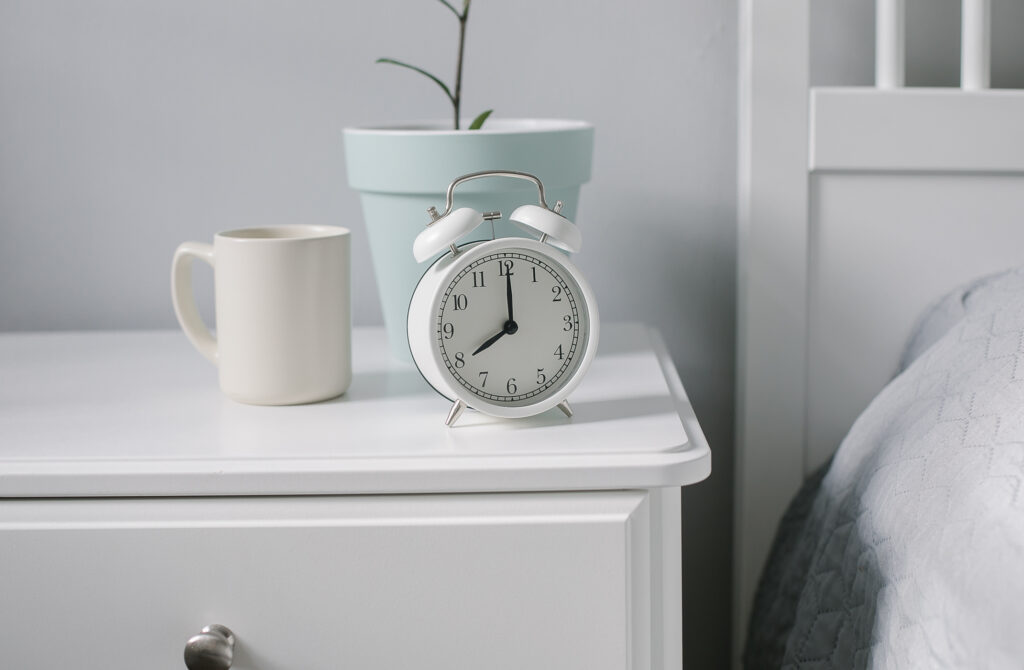
Sleep Tight: Creating Good Sleeping Habits
This post on Sleep is written by Kathryn McPhillips, M.S.
A restful night of sleep is vital to functioning daily. Despite this, many people struggle to get good zzz’s. The quality of our sleep affects our mental and physical health. In the short term, poor sleep is linked to irritable mood and poor concentration. Chronic poor sleep is linked to the development of mood disorders, memory challenges, and cardiovascular disease.
Good quality sleep enhances both mood and physical health. Sleep also boosts our ability to learn, promoting concentration and attention to information. During sleep, our brains consolidate information to help us retain and remember information. Although sleep problems might seem out of our control, we can change our lifestyle to impact our sleep positively. Below are a handful of tips to get good quality sleep at night.
AVOID CAFFEINE

Caffeine helps to keep us alert and active throughout the day due to its stimulant properties. The effects of caffeine can take up to 8 hours to wear off after consumption. Therefore, avoid caffeine consumptionat least 6 hours before bedtime.
AVOID GOING TO BED TOO HUNGRY OR FULL
Going to sleep hungry or too full can disturb your sleep. It would help to have a light snack before bed, such as a piece of fruit or warm milk, to prevent awakening due to hunger. Eat dinner at least two hours before bed to avoid awakening from being too full due to indigestion.
DON’T NAP

Naps may help us feel rested in the short term by making up for lost sleep; however, they make it harder for us to fall asleep at night. If you need to nap, keep it under one hour, and do not nap after 3:00 PM.
MAKE SURE TO EXERCISE
It is best to exercise early in the day or before dinnertime at the latest. Exercising within the three hours leading up to bed will increase our heart rate and body temperature, making it difficult for us to fall asleep. Early exercise can help us fall asleep quicker and stay asleep at night.
GET UP AND TRY AGAIN
Some nights, falling asleep proves difficult. We just lay there, unable to fall asleep. If you are unable to sleep after 20 minutes, get out of bed and leave the bedroom. When you get out of bed, avoid bright lights and stimulating activities, as these signal to your brain it is time to wake up. Instead, find an activity that can make you sleepy, such as reading or journaling. When you start to feel tired, you can go back to bed.
MAINTAIN A CONSISTENT SLEEP SCHEDULE

We should try to fall asleep and wake up at the same time every day to keep our bodies on schedule. Even though we may want to sleep in later on holidays and weekends, we should still aim to sleep and wake up at the same times as we would during the week. We can achieve a schedule by developing a relaxing bedtime routine. We can engage in the same calming activities every night, such as taking a bath or reading a book, so our brains learn it is time to sleep.
MAINTAIN A COMFORTABLE ENVIRONMENT
Your sleep environment needs to be at a comfortable temperature. The recommended temperature for the bedroom is between 60 and 67 degrees Fahrenheit. Your environment at night should also be as quiet and dark as possible. You can use earplugs or a white noise machine to help with the noise and use an eye mask or blackout curtains to make the room dark. Also, we should avoid clockwatching, as it can make us more anxious to see the minutes pass. Therefore, cover your clock or turn it to face the wall so you cannot watch the minutes pass by.
ONLY USE YOUR BED FOR SLEEP
The bed should only be used for sleeping, not other activities like chatting on the phone, watching TV, or eating. Eventually, your brain will associate the bed with sleep and learn that sleeping is the only activity allowed in bed. Therefore, when we get into bed, our brain will know it is time to rest.
SCHEDULE WORRY TIME
When our heads hit the pillow, many of us begin to think and worry about everything we must do the next day. If we worry in bed, we associate being in bed with stress and wakefulness. We should schedule a specific time during the day to worry or create a worry list. Schedule at least a half an hour to worry and assure yourself that your worrying is finished for the day. If you wake up worrying in the middle of the night, write down your thoughts and address them in the morning.
UNPLUG FROM SCREENS
When getting ready for bed, you should unplug from all screens, as the blue light emitted from screens can affect our body’s natural sleep rhythm by reducing the production of melatonin, a hormone that plays a role in sleep. Unplug from all screens at least an hour before bed. Instead, engage in a non-screen related activity, such as reading or coloring.
In Summary ...
Some strategies we thought were beneficial can negatively impact our sleep. Making simple changes to our everyday lives can help us sleep better at night. In turn, this can lead to better mental and physical health.
Check out our other popular blog posts:
